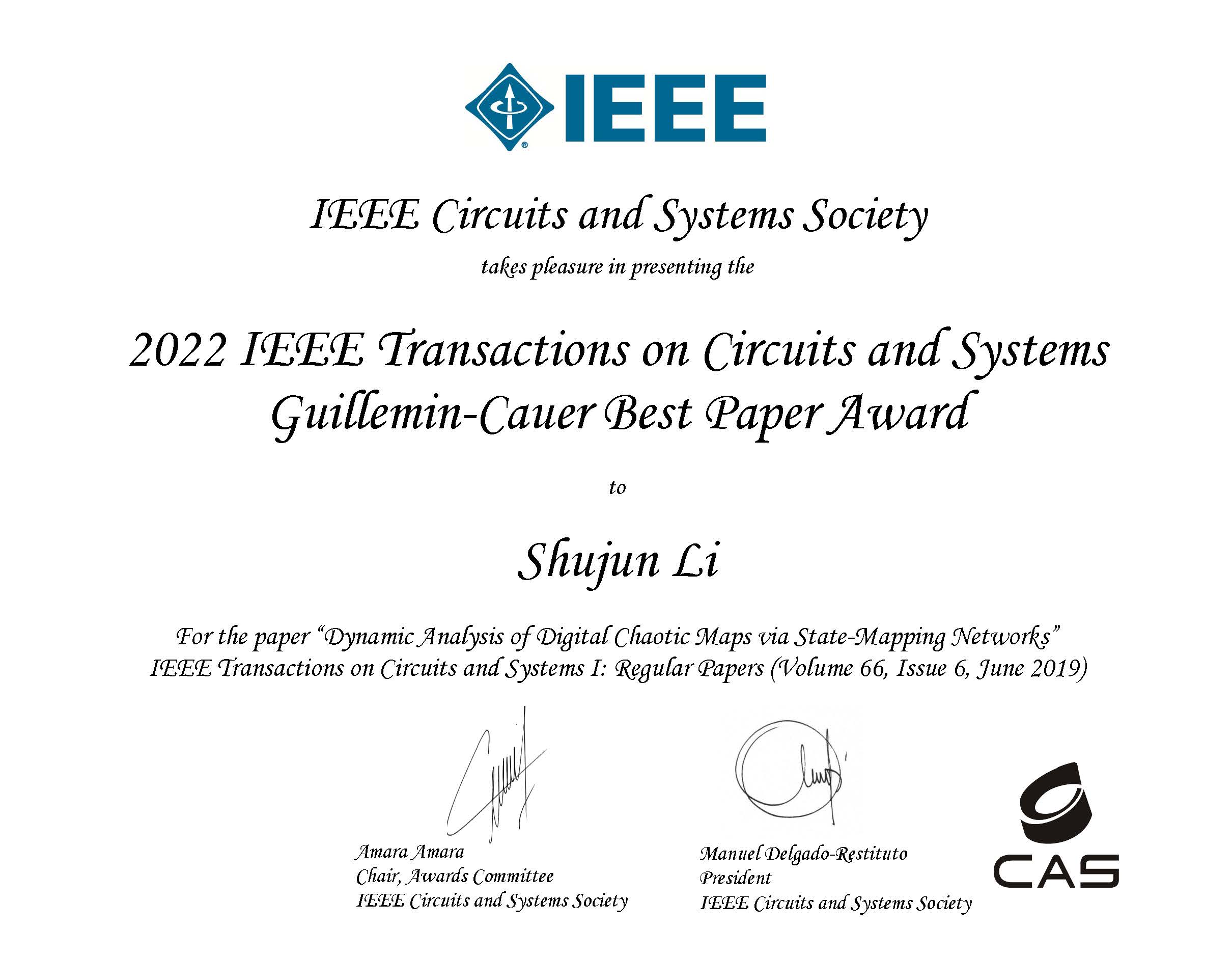Professor Shujun Li wins the 2022 IEEE Transactions on Circuits and Systems Guillemin-Cauer Best Paper Award
7 July 2022
Professor Shujun Li, Director of the Institute of Cyber Security for Society, has received the 2022 IEEE Transactions on Circuits and Systems Guillemin-Cauer Best Paper Award from the IEEE Circuits and Systems Society, for a research paper titled "Dynamic Analysis of Digital Chaotic Maps via State-Mapping Networks", co-authored with Professor Chengqing Li (Xiangtan University, China), Mr Bingbing Feng, Professor Guanrong (Ron) Chen (City University of Hong Kong, China), and Professor Jüergen Kurths (Humboldt University of Berlin, Germany), and published in IEEE Transactions on Circuits and Systems I: Regular Papers (Volume 66, Issue 6, pages 2322–2335, June 2019, DOI: 10.1109/TCSI.2018.2888688).
The award was established in 1968 and is awarded annually. The criteria considered include the general quality, originality, contributions, subject matter, and timeliness of the paper. This year's winning paper was selected from over 3,000 papers published at two main journals of the IEEE Circuits and Systems Society, IEEE Transactions on Circuits and Systems I: Regular Papers and IEEE Transactions on Circuits and Systems II: Express Briefs, in the past three calendar years preceding the award (2019-2021). The award was announced at the 2022 International Symposium on Circuits and Systems (ISCAS 2022), the flagship annual conference of the IEEE Circuits and Systems Society, which was held in Austin, TX, USA from May 28 to June 1, 2022.

Professor Li said, 'It is a great honour to receive the award, together with my other four collaborators. This piece of work represents a major development of quantitative and rigorous analysis of digital chaos since my 2005 paper 'On the Dynamical Degradation of Digital Piecewise Linear Chaotic Maps' published at the International Journal of Bifurcation and Chaos in 2005, by extending the analysis from statistical analysis under fixed-point arithmetic operations to network-based analysis under both fixed- and floating-point arithmetic operations.
'The work itself was the result of an international exchange project 'Dynamical degradation of chaotic systems in digital domain' funded jointly by the Royal Society in the UK and the National Natural Science Foundation of China (NSFC), from 2012-2014. It is interesting to see how the work took more than five years to be mature. Sometimes it does take time to make great things happen! I am very glad to see that the work has gained a substantial amount of attention from other researchers since published in 2019, and we hope it offers new tools for both theoretical analysis of digital chaos and its practical applications in many domains.'